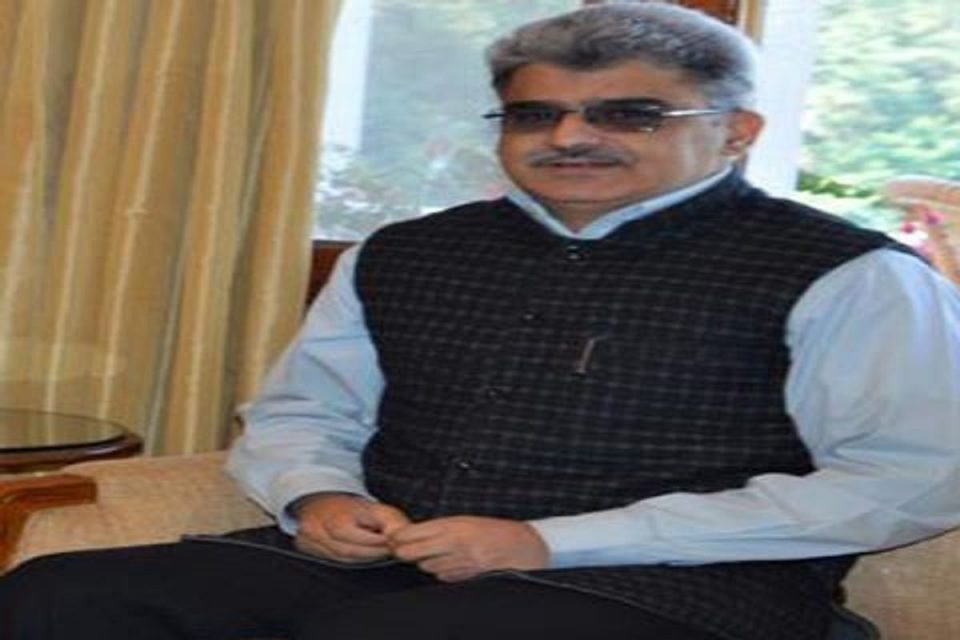Greater Kashmir: Has the J&K government kick-started the digital agriculture mission?
Atal Dulloo: We are working on it. We are keenly working to provide agriculturists with the latest technology and trends. Under the digital agriculture mission, we are planning to provide farmers with precedent farming so that farmers remain updated and get advisories about their crop’s concerned sectors. This will help us in giving integrated farming a new boost.
Greater Kashmir: Where do you see J&K’s agriculture sector in the next 5 years?
Atal Dulloo: Agriculture and its allied sectors have immense potential. If you see the country’s 70 percent apple produce, 95 percent walnut produce, and 90 percent trout are from J&K. Jammu Basmati, Kala Zera and apricots are our specialties. The quality of our sheep is the best in the country and we are again in the process of getting new breeds from New Zealand. J&K also produces high-quality silk and high-quality wool. Many gaps need to be plugged in and fixed on an immediate basis. The government has set goals and targets for the next 5 years and among others includes doubling the contribution of agri-GDP in the next 5 years from 4 billion USD to 8 billion USD. Other goals include meeting 100 percent SRR with quality seeds by building seed multiplication chains in PPP or through private entrepreneurship and doubling resource use efficiency from 30 percent to 60 percent in respect of nutrients and moisture by bringing in advanced technologies.
Also, the goals include reducing food waste by one-third (10 percent) through proper post-harvest management by building suitable infrastructure (CA stores, pack houses, refrigerated transport) and food processing, tripling food processing from 5 to 15 percent by focusing on secondary agriculture. Build capacity to meet the requirements of the quality planting material and establish 300 functional and profitable FPOs in 20 districts of J&K. Besides, the goals include availing Agriculture Infrastructure Fund of Rs 900 crore reserved by the Centre for J&K, vocational skill training for 2000 youth annually for next 5 years and building state Data Banks using Artificial Intelligence and ICT tools for apple, dairy, and small ruminants in next 5 years and reducing the use of agro-chemicals by 25 percent in next 5 years.
Greater Kashmir: Several works are being carried out in horticulture. How do you rate its performance?
Atal Dulloo: We have specialties and that is not just with the agriculture sector. Our horticulture can change the overall story of J&K. I keep reviewing the status of works being carried out under CAPEX, NABARD, Mission for Integrated Development of Horticulture (MIDH), and centrally sponsored schemes, and to assess other deliverables of the Horticulture and Agriculture Departments. Newly allotted works including establishment of walnut nurseries, strengthening of existing nurseries, subsidies under PARVAZ, and interest subvention for walnut processing units are being monitored daily. Several steps are needed for soil health management, issue of Soil Health Cards, strengthening of irrigation systems, organic farming, protected cultivation, and post-harvest management. The centrally-sponsored schemes including Pradhan Mantri Kaushal Vikas Yojana (PMKVY), PM KISAN, and Pradhan Mantri Fasal Bima Yojana (PMFBY) have given impetus to the farming community.
Greater Kashmir: Some of the insiders in your department say the Agriculture and Horticulture Departments need to reshuffle at the district level and works are being hampered by vested interests. Do you agree?
Atal Dulloo: During my recent meeting, I directed the finance sections to gear up the release and expenditure of funds. I directed them to seek necessary clarifications and get the funds released within a week for the timely execution of developmental works in the horticulture sector. Directions for releasing funds to JKHPMC were also passed by the ACS. The honest efforts of the government are on to bring agricultural reforms and provide maximum benefits to the farming community. Research and technical intervention will bridge the gaps in value addition and supply chain infrastructure and help in reducing high post-harvest loss. J&K’s economy and 70 percent of the population is dependent on it. In this year’s budget, as mentioned by Lt Governor Manoj Sinha Sahab, Rs 2835 crore has been allocated for agriculture and Rs 646 crore for the horticulture sector. Besides, for the development of the dairy and sheep sector, Rs 392 crore has been allocated separately so that positive changes can be made in the lives of the farmers and the progress of villages can be given a new direction altogether.


